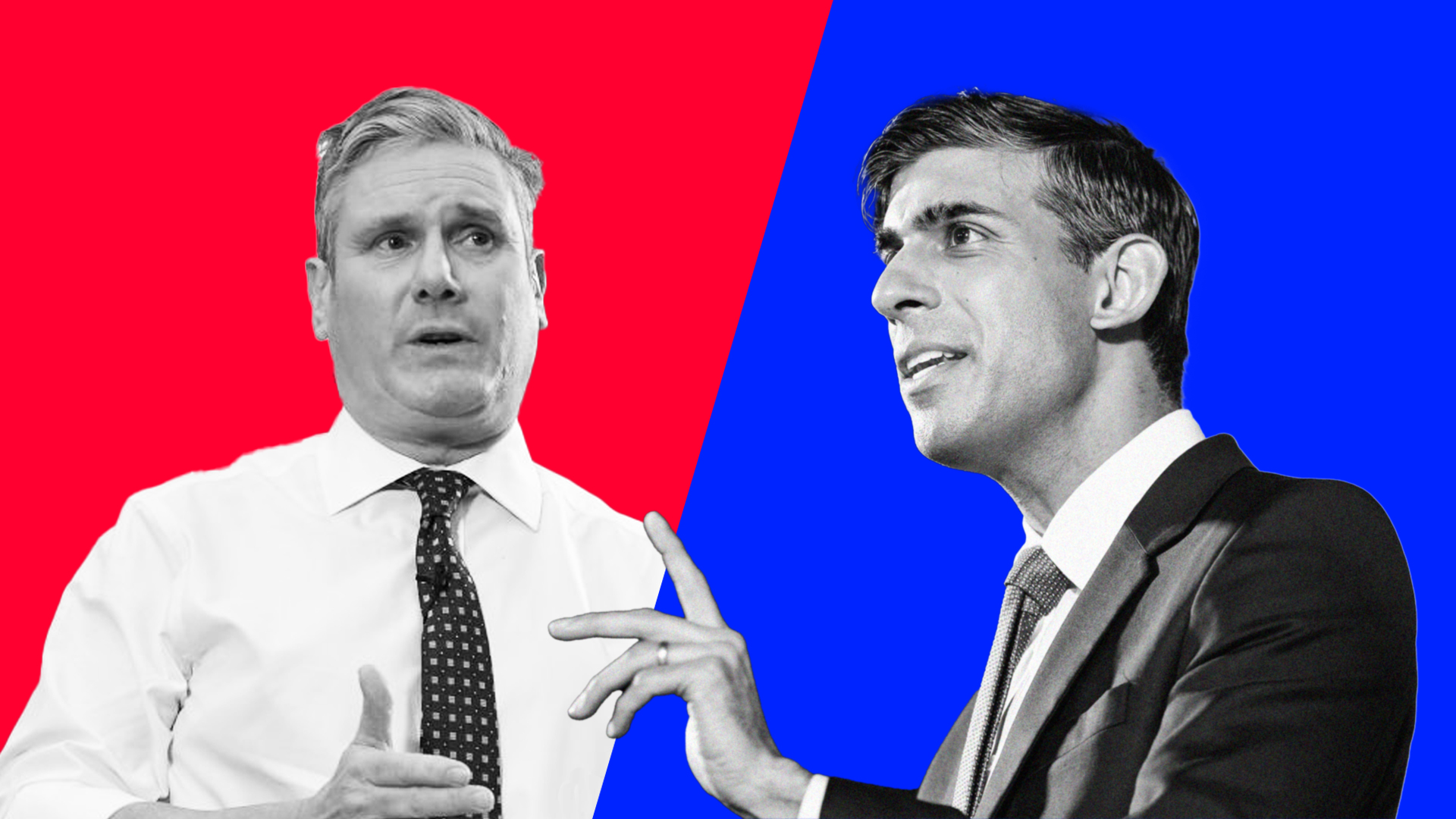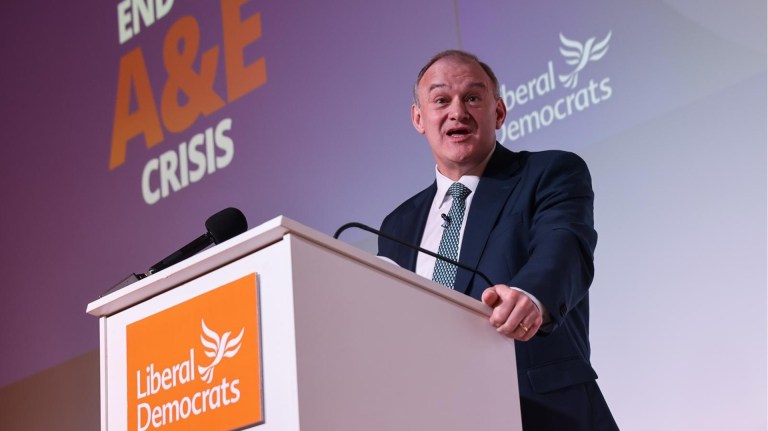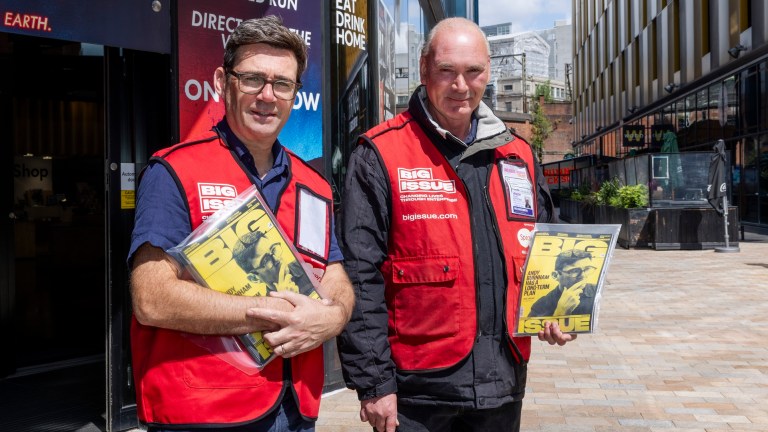The main causes are two-fold: lack of social care funding and lack of staff. Covid and winter flu numbers have exacerbated the issue but it’s not like this has come out of the blue. Frontline health workers have been waving red flags with ever-growing urgency for the best part of a decade and now the results are making themselves known.
Get the latest news and insight into how the Big Issue magazine is made by signing up for the Inside Big Issue newsletter
A third of hospital beds are occupied by people who are fit to be discharged but don’t have a social care plan once they get home to make sure they are looked after in recovery. On the wards themselves, a combination of Brexit and low pay mean staff have been leaving the NHS in droves. The remainder fight on through tears of desperation to deliver the care their patients need but, no matter how many hours they work, there aren’t enough staff to meet the demand.
Sunak and his health secretary, Steve Barclay, can claim they’re putting money in to social care and that nurses are already paid enough but there’s no evidence they’re fixing the problem. He promised to cut waiting times, but how? Starmer has promised a training programme and fair pay package but his shadow health secretary, Wes Streeting, has already ruled out meeting the pay demands from health unions. Will it be enough?
MPs have given themselves a pay rise over the last decade, but not the doctors and nurses keeping the country alive. It’s time they earned their keep by coming up with a solution.
Public transport
Affordable, reliable public transport is a good in itself. But it also has a role to play in addressing two current crises: It helps people get to work and access a wider range of jobs, and reduces carbon emissions by taking cars off the road.
Advertising helps fund Big Issue’s mission to end poverty
Most obviously, anybody trying to catch a train in the past six months will have found it a more harrowing experience than usual, thanks to an industrial dispute wiping out timetables. Neither leader wanted to dwell on the strikes – Sunak mentioned a desire for a “reasonable dialogue’ with unions. But fixing the immediate strikes is unlikely to address the deep-rooted issues with the country’s public transport on its own.
Sunak’s speech recognised a need to find employees to help businesses who are “crying out for workers”, but made no mention of public transport. High bus and train fares are not just a cost of living issue – they are a cost of working issue.
His government has done some work on public transport, with subsidies for local companies to cap bus fares at £2 until March. But when the subsidy ends and fares go back to leaving little change from £10, rural bus routes will be facing the axe.
Train fares are set to rise by 5.9 per cent in March, albeit with the government saying its “biggest ever intervention” kept them from soaring further. And strikes point to systemic problems, now and down the track.
Starmer’s speech did not address public transport directly, but with promises for devolution through a “Take Back Control Act”, there were the green shoots of solutions. Look to Greater Manchester, where metro mayor Andy Burnham’s devolved administration capped single fares at £2 and is launching the “Bee Network”, a network integrating buses, trains and trams across the city. Handing more power to more regions, as Starmer has pledged, creates the conditions for more reforms in this vein.
Energy bills
Sunak mentioned the word “energy” just once in his speech. “Energy security and net zero will be solved by innovation,” he said. This is at a time when energy bills are dangerously expensive and a total of 8.4 million people are expected to be living in fuel poverty by April if the government doesn’t act. That’s one in three families across the UK.
Yes, there was some support promised in the budget – like one-off cost of living payments for the most vulnerable. But average household energy bills are rising by a fifth to £3000 from April. That is well over double what bills were at the beginning of 2022.
Advertising helps fund Big Issue’s mission to end poverty
Starmer’s speech called the government’s energy price freeze the “perfect example of sticking plaster politics”. He announced a Labour government would forge partnerships with the private sector on energy, using a new public-owned company called Great British Energy.
Starmer said: “If you take action early, then businesses and working people get cheaper bills forever.” Labour will also invest in renewable sources of energy, according to the shadow chancellor Rachel Reeves.
What Starmer could have announced, and campaigners like Fuel Poverty Action and the End Fuel Poverty Coalition have been pushing for, is a much tougher windfall tax and an end to huge subsidies going to oil and gas producers, traders and suppliers. Another long-term solution would be to make homes more energy efficient and affordable.
And campaigners warn that emergency measures are needed now and urgently to help the most vulnerable who are struggling to survive – even if they are “sticking plaster” solutions.
This means financial support that goes further than what’s already being offered by the government, which won’t be enough for many people facing fuel poverty, and banning the forced transfer of households onto more expensive pre-payment meters.
Without both the long-term solutions and the immediate support, millions more will face the bleak realities of living in a cold, damp home for months and years to come.
Advertising helps fund Big Issue’s mission to end poverty
Water pollution
Remember the uproar when MPs voted to let water companies continue dumping sewage in our waters? That was in 2021, but it’s still happening. So far in 2023 – all five days of it – there have been more than 320 pollution alerts issued for UK beaches, according to Surfers Against Sewage.
Even the traditional Boxing Day swims weren’t safe. Bridlington’s South Beach festive dip was cancelled following warnings from the Environment Agency about a rise in both Escherichia coli and Intestinal Enterococci bacteria in the water.
People in Kent were also told not to swim in the sea on New Year’s Day after sewage spillages followed heavy rainfall.
While not as high on the agenda as the broken NHS or the shutdown of the rail network, the public feels strongly about the dumping of sewage in the UK’s rivers and seas. Neither the Sunak or Starmer speech mentioned it, though. Or the word pollution.









